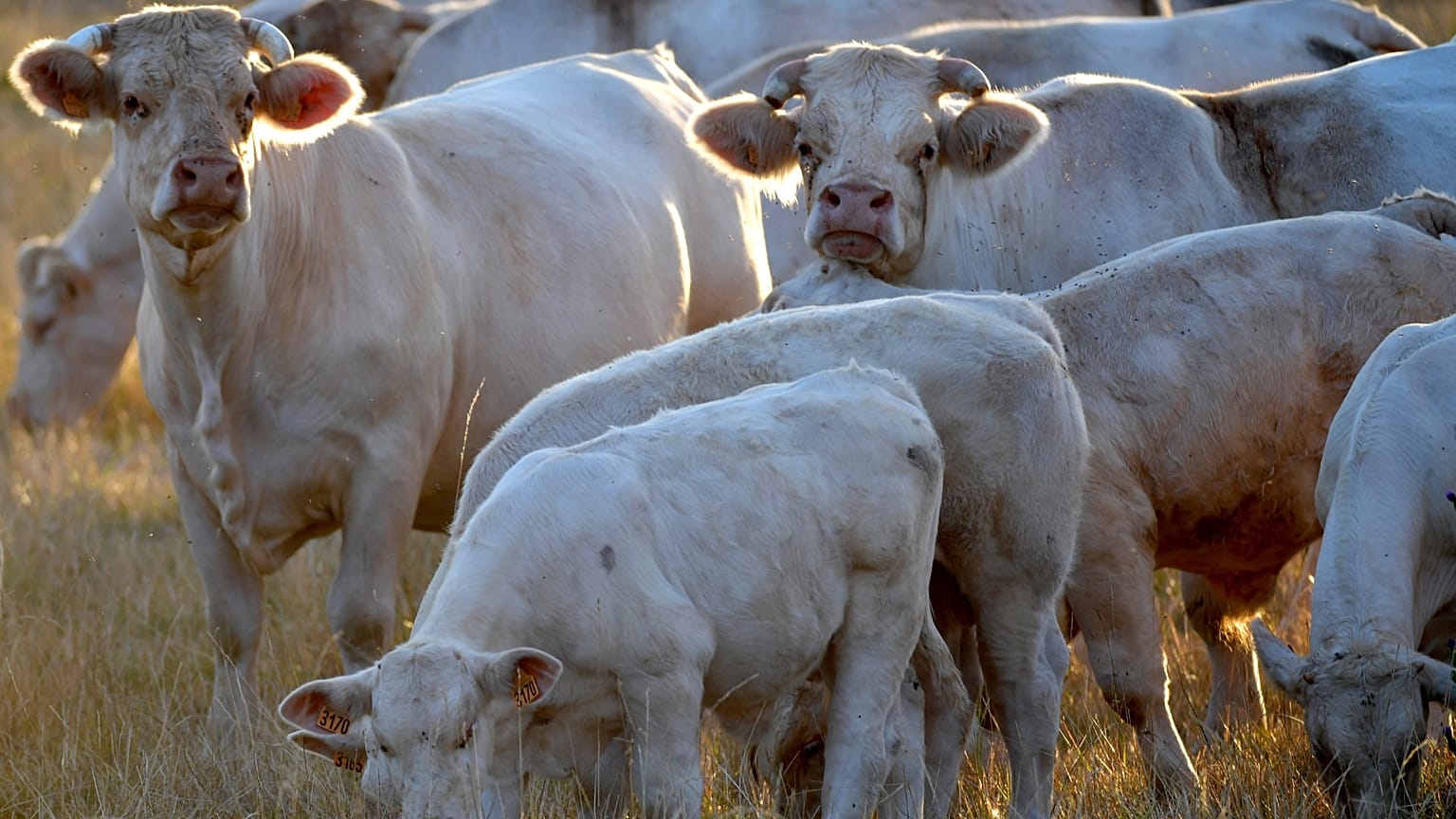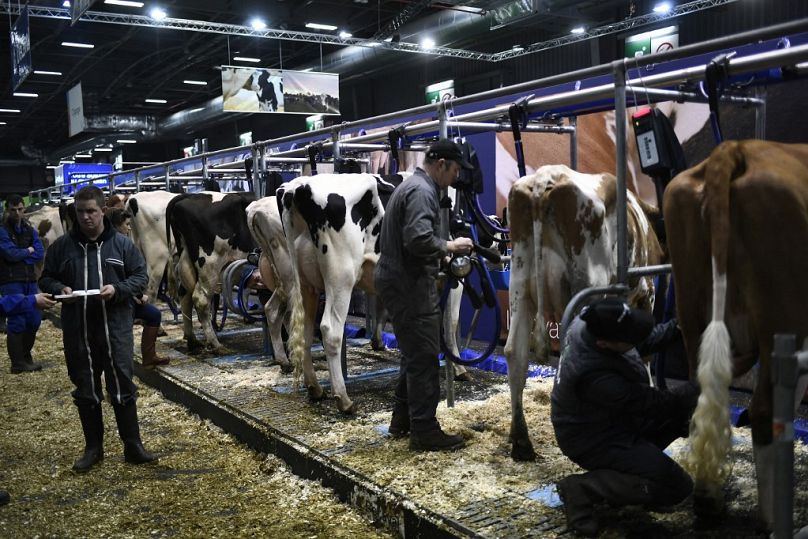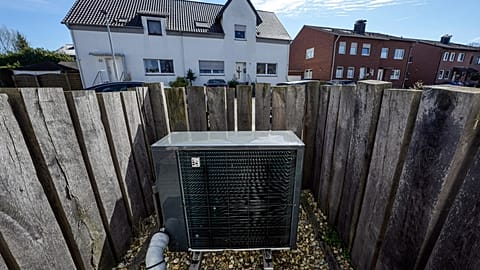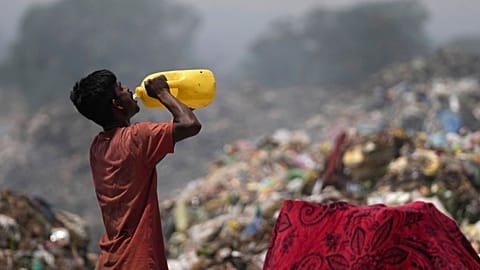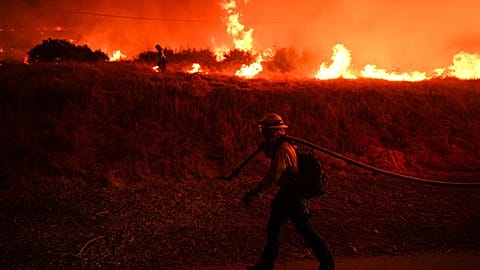Cattle farmers say calls to cut the number of cows would mean more imported meat.
France needs to have fewer cows to meet climate change commitments, according to the Cour des Comptes - an independent court in charge of auditing public funds.
 ADVERTISEMENT
ADVERTISEMENT
 ADVERTISEMENT
ADVERTISEMENT
The French government recently unveiled a plan to speed up cuts in greenhouse gas emissions. It includes a target reduction of 50 per cent by 2030 compared with levels in 1990.
Included in this plan is a goal to reduce emissions from agriculture by almost 20 per cent during the same period - but there aren’t any details yet on how France will do this.
Why does France need to cut its number of cows?
With 17 million cows, cattle farms in France are thought to generate nearly half of all agricultural emissions. Overall, they make up 12 per cent of France’s total emissions.
In its ruling, the court wrote “the state of cattle farming is not favourable for the climate” adding that, despite other efforts to reduce greenhouse gases like fixing carbon in the soil, overall emissions still remained very high.
The report from the Cour des Comptes, released on Monday (22 May), came as Prime Minister Élisabeth Borne presented the new plan to cut carbon emissions across all sectors.
It asked the Ministry of Agriculture to define its strategy to reduce methane emissions which it says “necessarily requires a significant reduction in the herd”. The court said the ministry had already communicated its aim to reduce cattle herds from 17 million to 15 million by 2035 then 13.5 million by 2050.
It also added that France would still be able to produce enough meat to feed its population without imports if the public stuck to guidelines which recommend eating no more than 500g a week.
How have cattle farmers responded to the recommended cuts?
French cattle farmers say cutting the number of cows in the country isn’t the answer.
The French Interprofessional Association for Cattle and Meat, Interbev, said in a statement that the fields in which cows graze help capture carbon and protect biodiversity.
It also claimed that the continued reduction in cattle herds would “accentuate the increase in imported meat” asking “Are we really ready to sacrifice our sustainable farming model and food sovereignty?”
“This is why Interbev deplores the fact that the climate issue is too often reduced to carbon issues alone,” the association added.
Minister of Agriculture and Food Security Marc Fesneau made a lengthy post on Twitter in response to the debate. He said that recommendations for a “forced downsizing” were “curious if not out of touch with reality.”
Fesneau asked whether it would mean an increase in imported food and if “in a hypocritical way” these emissions needed to feed the country wouldn’t be counted in its total.
Cour des Comptes pointed out that low earnings and harsh working conditions were already causing farms to downscale or close. The number of cows in France has already dropped from 20.3 million in 2000.
The court recommended that “farmers in difficulty” should be compensated to allow them to “turn to other systems of production” or “change professional direction”.














